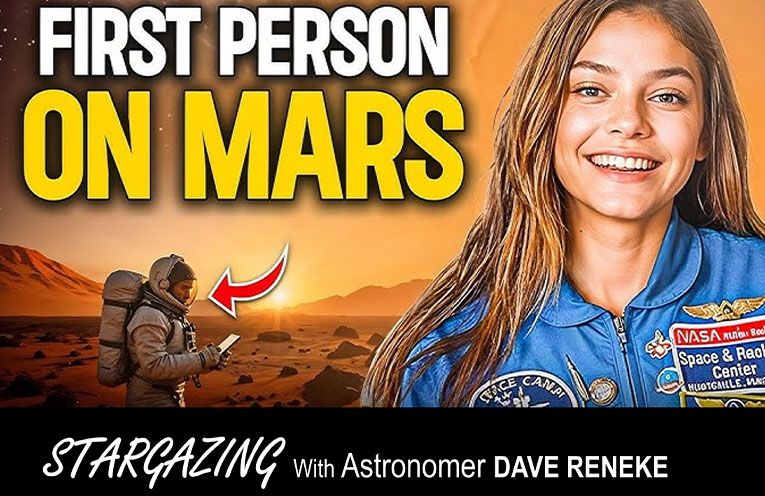PICTURE this: you’re 23 years old, and while most of your peers are still navigating university or working out what to do with their lives, you’ve already chosen your destiny.
Not fame, not fortune – but Mars.
That’s the life of Alyssa Carson, a young American who has devoted almost every waking hour to one extraordinary goal: being one of the first humans to set foot on the “Red Planet”.
For Alyssa, space was never a passing fascination.
While other kids doodled ponies or superheroes, she was sketching rockets and alien landscapes.
She threw herself into every opportunity including space camps, science programs, astronaut simulations.
By her teenage years, she was enrolled in the Advanced PoSSUM Space Academy, a demanding program focused on suborbital flight research.
That’s serious training for someone who couldn’t yet rent a car.
And Alyssa hasn’t slowed down.
She’s learned languages, studied science and engineering, and tested her resilience in environments designed to push human limits.
In her mind, there’s no Plan B.
Everything points toward Mars.
Now here’s where it gets spine-tingling.
Alyssa has said, without hesitation, that she would accept a one-way mission.
No guaranteed return ticket.
No final trip home.
Just her, her crew, and an alien world.
Most of us would balk at such a fate.
For Alyssa, it’s simply the price of progress.
History is full of explorers who sailed into the unknown, not knowing if they’d ever come back.
Mars is the next great ocean.
So when could this giant leap actually happen?
NASA is preparing for the Artemis missions to return astronauts to the Moon in the next few years, using it as a testing ground for the technologies needed to reach Mars.
If timelines hold, the first human footprints could mark Martian soil in the 2030s.
And when that day arrives, Alyssa might just be the one pressing her boot into that alien dust.
But let’s look beyond that first step.
A Mars colony won’t resemble the sci-fi cities of glass spires we’ve seen in films.
At least at first, it will be about survival.
Picture giant domes filled with breathable air, greenhouses glowing with rows of hydroponic crops, and small crews huddled in pressurized habitats.
Outside those domes, the landscape is brutal – dust storms that last for weeks, thin air unfit for breathing, and temperatures that plunge far below zero.
Every breath, every sip of water, every bite of food will have to be engineered or grown under harsh conditions.
Yet imagine children being born there, never having seen Earth’s blue skies or oceans.
They’ll grow up under salmon-coloured sunsets, in one-third gravity, in a culture entirely their own.
They’ll be Martians in the truest sense, members of humanity’s first off-world society.
One day, when people on Earth look up at that red spark in the night sky, they’ll know it’s not just a planet anymore.
It’s a second home.
Would you go?
Could you abandon the comfort of Earth for a fragile life on a barren desert world?
Most of us would hesitate.
But Alyssa Carson doesn’t.
Her commitment reminds us that exploration has never been about comfort – it’s about courage.
Mars is waiting. And because of dreamers like Alyssa, we’re closer than ever to knocking on its door.
By Dave RENEKE, Astronomer



